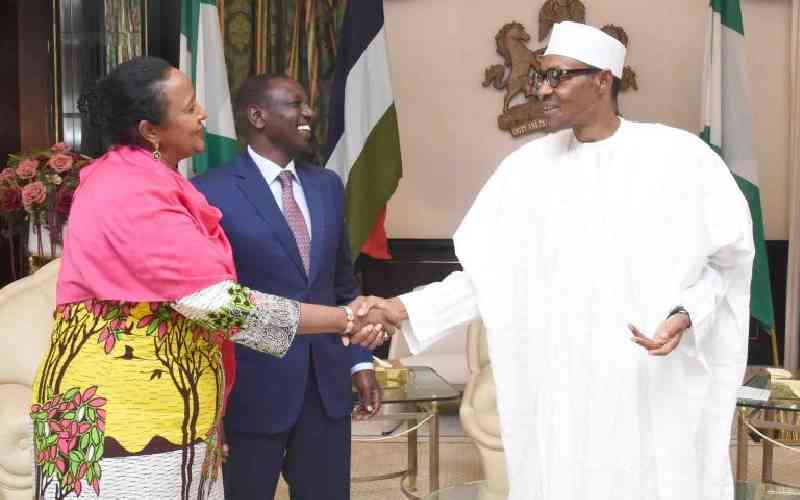×
The Standard e-Paper
Truth Without Fear

President William Ruto and Azimio leader Raila Odinga's charm offensive in Africa in a bid to secure the African Union Commission (AUC) chairmanship seeks to avoid the mistakes of 2017 when Kenya's candidate Amina Mohammed failed to clinch the seat.
Soon after President Uhuru Kenyatta unveiled Amina, Ruto, then Deputy President, led the campaign. He visited ten countries; Chad, DRC, Nigeria, Algeria, Ghana, Liberia, Ivory Coast, Mali, Sierra Leone and Gabon.